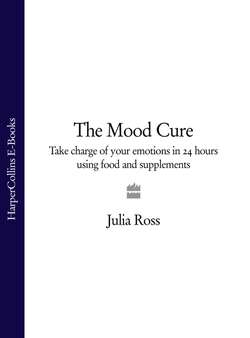Читать книгу The Mood Cure: Take Charge of Your Emotions in 24 Hours Using Food and Supplements - Julia Ross - Страница 40
Are You Obsessive or Controlling?
ОглавлениеAre you a perfectionist? Many of our clients have always felt driven, unable to relax about grades, looks, or work. Do you wonder about, or have other people commented on, your tendency to focus on a single worry: your weight, your work, or a problem that you perceive in someone else? This tendency to be obsessive is a quality that typically disappears with adequate serotonin. Often these symptoms are so familiar that you think of them as normal. Like the repetitive worries that keep you awake at night or being too “anal” about your school or work projects or your housekeeping. But that’s not really you: it’s low serotonin. Even with more compulsive behaviors and rituals, like hand washing and hair pulling, it’s usually the same story.
“Controlling” is another name that you might be called if your serotonin is low. You may be hypervigilant and critical about how other people do things. You may take over and do things for them, creating a co-dependent cycle in which they come to depend on you but resent you for not letting them work it out for themselves.
Whatever your personal serotonin-depleted style may be, increasing your serotonin levels will allow you to start to move more gracefully and graciously from one stance to another, to try new things, to be more creative and less rigid. And don’t forget that the symptoms of low serotonin tend to run in families. Does anyone else in your family come to mind regarding these traits? For example, we’ve had dozens of clients whose mothers obsessed about their own weight, constantly dieting and making critical remarks about themselves. Often they obsessed about their children’s weight as well, overmonitoring their food intakes and taking them to diet doctors at very young ages.
Obsessiveness may appear or get worse after pregnancy, if already marginal levels of serotonin fall too low. The baby may be affected, too. We worked with a young mother who had been part of a study testing the effects of the medication Paxil on obsessive-compulsive disorder (OCD). She twisted her hair obsessively and had to go back to check that her door was locked three times before she could leave the house. Paxil had made her tired, caused her to gain unneeded weight, and had only taken the edge off her OCD. She was looking for a better way, now that the study was over, for herself and her 5-year-old son. Her little boy was obsessive in several ways, but his outstanding obsession had to do with the movie 101 Dalmatians. It was the only thing he talked about and the only thing he’d been able to think about for quite a while. A few weeks later, while on the supplements, she reported considerable relief from her own obsessions and told us the following story about her son: He had come up to her about a week after starting his supplement and said, “Gee, Mom, it’s kind of fun thinking about something besides 101 Dalmatians!”
You, too, can become more flexible, relaxed, and obsession-free once your serotonin levels have been nutritionally shored up.
